
In recent years, the growing concern over plastics in our environment has led us to look into their use in everyday items. In Britain, a whopping 100 million cups of tea are drunk every day (according to The UK Tea and Infusions Association) – so many of us were shocked to learn that our favourite brew could contain plastics, albeit a very small amount.
Why is there plastic in tea bags?
The plastic polypropylene is used in some tea bags as a sealant; it is resistant to heat and water, which has made it a useful option to ensure tea bags don’t fall apart when brewing a cup of tea.
What’s the problem?
Increasingly many of us have a food waste recycling collection at home – which is positive because it means that any kitchen scraps can be turned into energy and fertiliser rather than releasing poisonous greenhouse gases when they go to landfill. Tea bags can be placed in the food waste recycling, however if they contain this plastic, which doesn’t biodegrade, then it will stay in the environment for a very long time.
While not all of us are able to recycle food waste at home yet, more local authorities are providing this service and the government aims for everyone to do this in the coming years with policies being put in place to ensure that happens.
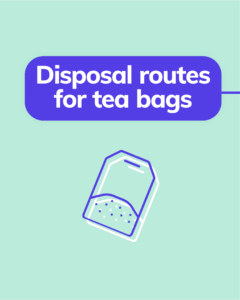
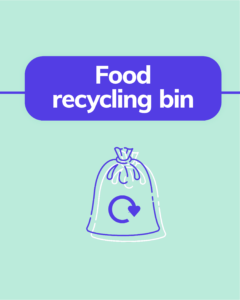
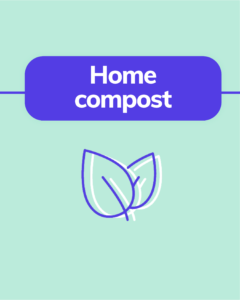
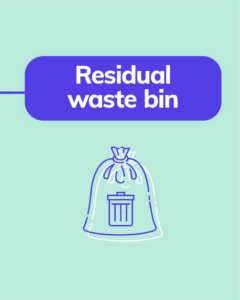
To find out more about how to recycle tea bags, visit Recycle Now.
What’s the solution?
While the plastic is required as a sealant in tea bags, it’s important that the environmental impact of this plastic is reduced. WRAP believes this would be best achieved by making the plastic sealant compostable. This would mean switching from a ‘conventional’ oil-based plastic – polypropylene – to a compostable plastic. In most cases polylactic acid (PLA), a biodegradable polyester produced from lactic acid would be used as a substitute.
Food waste collected from people’s homes can be recycled through two different processes:
- In-vessel composting is sometimes used and this is the perfect process for compostable plastics to break down in the way that they are designed to.
- Much food waste is recycled through a process called anaerobic digestion (AD). This process is not ideal for compostable plastics because the oxygen needed to help the plastic break down is not present in the process. Because compostable tea bags may not fully break down in the AD process, the situation is still not ideal, but it is currently the best method to reduce the environmental impact of our plastic consumption in tea. Future developments may mean that AD facilities become equipped to processing compostable plastics, but this is not yet widespread.
Fact check:
What is meant by biodegradable tea bags? Is there is there a difference between biodegradable and compostable tea bags?
The term biodegradable means that something will break down in the natural environment.
However, without parameters it is a relatively meaningless term because it doesn’t define how long something will take to break down and the conditions required.
The term compostable means that something will break down under specific composting conditions – usually in an industrial process which requires that item to be certified as compostable.
While compostable plastics are still a plastic; switching to them means that where food waste is collected for recycling, conventional plastic does not end up in the natural environment as a result of it being contained in tea bags.
Can I home compost tea bags?
Unless the tea bags are labelled as home compostable then they might not break down because generally compostable plastics are designed to go through an industrial process. Tea bag ‘skeletons’ could either be sieved out when you use the finished compost, or you could rip them open before placing in your compost bin and compost the tea while disposing of the bag.
What are tea brands doing?
Several tea brands have already made the switch to compostable tea bags. This is not without its challenges and that’s why it has not already happened across the board. The brand needs to consider lots of factors, such as ensuring that any new sealant is safe to have in your drink, and that the quality of the finished product is maintained.
Case studies:
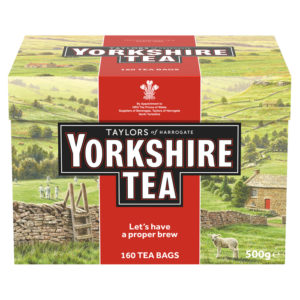
Taylors of Harrogate, which owns Yorkshire Tea, has now switched one fifth of its tea bags to PLA plastic and aims to have switched the majority of its range by June 2021.While working as quickly towards compostable as possible, Taylors hit a number of challenges, including some of the initial PLA tea bags falling apart in people’s mugs!
Kathryn Patchett, Taylors Product Sustainability Specialist, says: “the move to PLA has been a bumpy journey as we’ve gone through multiple trials and testing to ensure the seal on our tea bags is strong enough for people’s brews. We also had to pause the rollout when Covid hit to simplify production, but we’ve started up again and are doing all we can to make this important switch.” Find out more here.
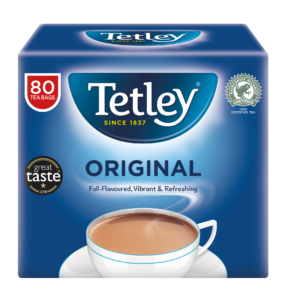
Tata Consumer Products is the parent company of well-known tea brands including Tetley. Tetley is in the final phase of scale up trialling for its compostable tea bag with six and a half million having already entered the market with good results. Tetley is looking to scale up production and continue roll out this year. Read more here.
What is WRAP doing?
Through The UK Plastics Pact, WRAP is encouraging more brands to adopt compostable tea bags as soon as possible. Non-compostable tea bags are listed as an item that is categorised as problematic plastic under the Pact, and businesses are requested to have action plans in place to address them.
What else could I do?
Another option to tea bags is to try loose tea.
Why aren’t all plastics compostable?
Switching all plastics to compostable versions isn’t going to solve the plastics problem, and it doesn’t make items ‘plastic free’. While tea bags can go into food waste recycling collections where they are available, this isn’t an option for many other plastics such as bottles or tubs and trays. The UK’s composting infrastructure is currently limited and it’s more important to recycle these with other plastics to ensure the material retains value and stays in the economy and out of the environment.
